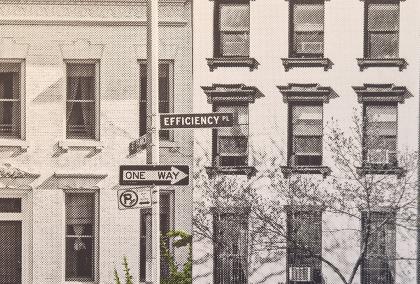Thoughts from My Fulbright Year
Anna-Maria Tamminen
LL.M. Program
NY University
2010-2011
How to choose courses?
Somebody very wise told me to ”pick by professors, not courses.” By this they meant that one should opt for courses taught by interesting and experienced professors, regardless of what the course description contained. I agree with this advice for the following reasons:
- Experienced professors know how to teach. The greatest difference between the lectures I attended at university here in Finland and in the US was in the quality of the teaching. Although in both countries you come across great academics, it makes a difference if the person knows how to deliver their message and has practiced this for years. The Socratic method is most effective when the professor knows how to formulate a question in a way that will keep the discussion going and the students challenged. The more a professor has practiced this, the better they are at managing the class discussion and teaching you through the Socratic method.
- What they teach is less relevant than how they teach you to think. If you’ve made it through the selection process, you are capable of finding information on your own, reading text and repeating what you’ve learned. The experienced professors and teachers add another dimension to that. They teach you how to connect the dots, to put everything into context, to challenge your thinking patterns and trust your instincts. They teach you how to learn differently and maybe better. They put their experience at your disposal.
- The most experienced professors are well connected. They can not only write you recommendation letters for jobs advertised by people who have attended their classes but they probably also know a great deal about the opportunities outside the classroom. All you need to do is ask, listen and participate.
How many courses to take?
Here in Finland it is often possible to take courses without really attending lectures and just sitting for the final exam. In the US the opposite is true. What happens in class is the most important part of the learning process. However, in order to be able to participate, one has to prepare appropriately.
In order to get the best out of your experience, I would suggest only taking the required or recommended number of credits. There is a lot of reading material assigned for every class and the professors have actually spent a lot of time thinking about the learning experience. With the required number of credits, one’s workload will still be reasonable even if some weeks there are additional assignments for one class or reaction papers to write.
The US universities also offer a lot of seminars, conferences and speeches on campus that are not related to any courses. If your schedule is packed with course work, you will not have the time to make the best of these opportunities to meet and listen to experienced practitioners, political leaders or others invited to the university. You are also in the US to build yourself a professional network for your future years. If your schedule is too busy, you are missing out on a number of interesting encounters with fellow students from different countries.
How to prepare for class?
Once you enter a US classroom, you will see all students perched behind a laptop screen – unless the professor has specifically banned the use of laptops in his or her class. Most US students take notes on their laptops and work towards building an outline of their notes with which they study for the final exam. Most professors also allow one to take the outline to the exam. If you can, I would suggest working together with others towards producing such an outline or finding an existing outline to work off of. This will spare you a lot of unnecessary work and even your workload before and during exam season.
Exams or papers?
The degree requirements often define how many credits one needs to take and those requirements often include several courses that test your knowledge in a final exam. These final exams are often different from one professor to another and range from all-period take-home exams to in-class exams of a few hours. It is worth reading the course descriptions before signing up for classes as sitting for several 8-hour take home exams during the same week is probably not advisable. So you may want to balance things out with a few exams and maybe one big paper per semester. Just don’t plan to hand that paper in the week of the exams!
Theory or practice?
My law school offered a great variety of both theoretical and practical courses, ranging from colloquia where academics discussed their papers on legal theory to hands-on clinics where students acted as counsel for real clients. My advice is to pick a variety of courses – one that leaves you with enough theoretical challenge to satisfy your inner academic to those that will prove useful in understanding the world around you and get a glimpse into the practice in some specific area of law. In my personal experience though, the ‘hard core’ law courses were better than some of the more practice driven courses taught by adjuncts, but I may just have picked the wrong course.
ABA American Bar Association: Preparing for Law School
Bidding and shopping
My law school had a bidding system for the courses in which the students got a certain number of points to bid for courses. It is hard to figure out how the system works when you come from abroad but information is available and although it takes a lot of time to plough through it, I would recommend one to do so. It is also possible to call the law school and seek assistance from both the administration and the professors themselves. For the most popular courses the bidding system is the only way in, so bid wisely. There is, however, no harm in shopping around for less popular courses. During the first week of term, you can attend several classes (and why not bid on the extra course if you have the space) and decide what suits you and what doesn’t once you’ve had the chance to see the professor in action.
No harm in asking
Although your experience will be unique, others have gone through the same before you. Their experiences will be unique too, but they might have useful tips on or ideas about great courses, seminars or colloquia. The schools go out of their way to provide information on courses through evaluation systems and course descriptions but most often it is someone’s enthusiasm about a certain course that will make you opt for that particular professor’s lecture series, which will change your life. So find someone who went to your school and don’t be afraid to ask them questions. I bet they’ll tell you something useful that you would not have discovered online, and I bet they’ll be more than happy to talk to you about their experience.
The network
If US universities do one thing better than similar institutions elsewhere, it’s networking. They have amazing alumni databases, they invite speakers ranging from government officials to poets and sportsmen to speak to their students, and they do not just advertise jobs on some pin board, there is an entire recruitment industry behind these institutions. You are paying a lot of money to attend your university, so make the most of it. Whether your dream job is at the World Bank or the International Criminal Court, my guess is it will be easier for you to land that dream internship or job through the student fairs and internship application systems of your US university than it will be applying directly from a remote end of the world. The career centers know how to help you draft that perfect application letter, the professors might well be connected to people within the institution selecting the candidates for interview, and the person reading your CV might well be an alumnus of the school you will be attending. So make the most of the career engine at your US institution and apply for that dream job or internship.
The bureaucracy
Unfortunately the paper work does not end with your arrival in the States. For this reason, I would recommend that you consider before leaving if you will sit for any professional exams or the like in while in the US. The application periods for such exams are long, but obtaining original copies of certificates etc. is a lot easier before departure than when you are in the US. So think ahead and ask for that extra copy of your transcript or local professional qualification before you depart – you’ll save yourself a lot of work and postage costs at the other end.
Enjoy!
There’s a lot to take care of before you get to the US and there’s a lot to take on board once you get there but don’t forget to enjoy your experience. Make the most of every day in class and outside class because before you know, your stay will be over and you will be reminiscing about that fantastic year with your new international friends.


